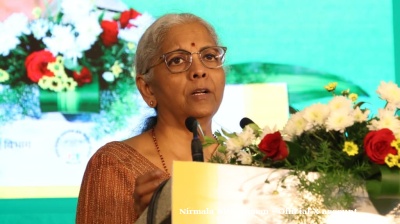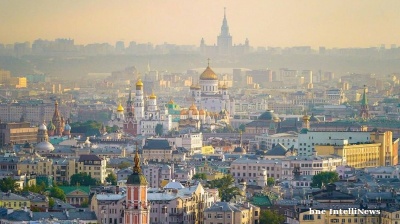Iranian Foreign Minister Mohammad Javad Zarif on December 3 called on Saudi Arabia to limit its $67bn annual defence spending to Iran’s $10bn, and challenged Riyadh to stop the spread of weapons across the Middle East.
He questioned whether Saudi Arabia and its ally UAE really wanted to fight Israel’s battle against Iran.
Once these countries no longer believed they had a US blank cheque, they would start engaging with Iran, he said, speaking at the Roma Med 2020 conference by video link.
Iran sees the US Trump administration as having in the past four years given regional arch-rival Saudi Arabia a blank cheque when it comes to acquiring weapons. The incoming Biden White House is likely to keep up the US stance that it wants Tehran to engage in talks on the Iranian ballistic missile development programme and dialogue on regional conflicts, in which Iran backs various militia. Zarif said in regard to missiles and regional dialogue that Iran was willing to hold talks with its neighbours but it might require the US to withdraw its blank cheque to Saudi Arabia.
Bona fides
Sharing more thoughts on how the Biden administration might persuade Iran to come back into full compliance with the 2015 nuclear deal, Zarif said the Iranians would do so if the US proved its bona fides by lifting all sanctions.
Iran would not require the US to rejoin the nuclear accord—formally named the Joint Comprehensive Plan of Action (JCPOA)—before lifting its sanctions, but would need some kind of watertight undertaking that once Washington did rejoin, it would not under Joe Biden simply unilaterally exit the multilateral deal in the same way that Donald Trump did in May 2018.
Iran is talking tough in advance of attempting to find a way forward that might lead to a rapprochement with the US after negotiations with the Biden foreign policy team, but at the same time its economy has endured a severe three-year recession under the Trump “maximum pressure” sanctions and there is plenty of tempting low-hanging economic fruit to be plucked should an agreement be struck with the US once Trump has gone from the White House. For instance, India this week has said it wishes to restart importing Iranian crude oil when US policy no longer threatens to penalise New Delhi for such trade.
Sunset clauses
The US, meanwhile, is concerned that many of the JCPOA key clauses are due to expire in 2025. Biden officials, therefore, are likely to push for new sunset clauses. However, Zarif ruled out renegotiating the existing nuclear deal, saying: “We will not renegotiate a deal which we negotiated.”
He added: “The US must implement without preconditions its obligations under the JCPOA. It has to show its good faith, it has to establish its bona fides, then Iran will go back in full compliance with JCPOA.”
Zarif pointed out that the US started the talks on the deal that was eventually signed five years ago wanting 20 plus 10 years of restrictions, while Iran wanted none. “We agreed on somewhere in the middle, 10 plus a few more. This was the subject of two years of negotiations. It will never be renegotiated. Period,” he said.
Zarif went on: “The JCPOA and any international agreement is not a revolving door. It’s not that you can come in, impose restrictions on others, benefit from the privileges of membership and suddenly decide to leave and inflict $150bn of damage on the Iranian people [through sanctions and other measures].”
He added: “We will have to be satisfied that this is not repeated.”
Parliament’s resolution
Zarif also told the conference audience that Iran’s government did not like the resolution passed by the Iranian parliament demanding that the country scale up its uranium enrichment activities in its nuclear development programme and potentially put an end to UN atomic watchdog inspections on that programme by February if US sanctions were not removed.
However, he said the resolution was reversible and would not be adopted if the US lifted sanctions.
Iran’s parliament is dominated by hardliners whereas Iran’s government, the Rouhani administration, is seen as pragmatic and centrist. However, mid-2021 elections might allow the hardliners to retake the presidency, especially if the Iranian economy continues to endure rough times under US foreign policy.
News

India’s finance minister to miss upcoming IMF and World Bank meetings
India’s Finance Minister Nirmala Sitharaman will not attend this week’s annual meetings of the International Monetary Fund and World Bank in Washington, as trade negotiations between New Delhi and Washington remain unresolved.

Young Ukrainians asylum seekers fleeing the war for Germany surges
The number of young Ukrainian fleeing the war and seeking asylum in Germany has surged, following Ukraine’s decision to partially lift its travel ban for men aged 18 to 22, according to figures from the German Interior Ministry.

Malaysia plans social media ban for children under 13, following Singapore's lead
Under Kuala Lumpur’s proposal, all social media platforms will be required to implement mandatory identity verification systems to prevent underage users from creating accounts.

Following airstrikes, Pakistan and Afghanistan agree peace deal
In just the past few hours, Pakistan and Afghanistan have reportedly agreed to a temporary ceasefire following several days of cross-border clashes.



